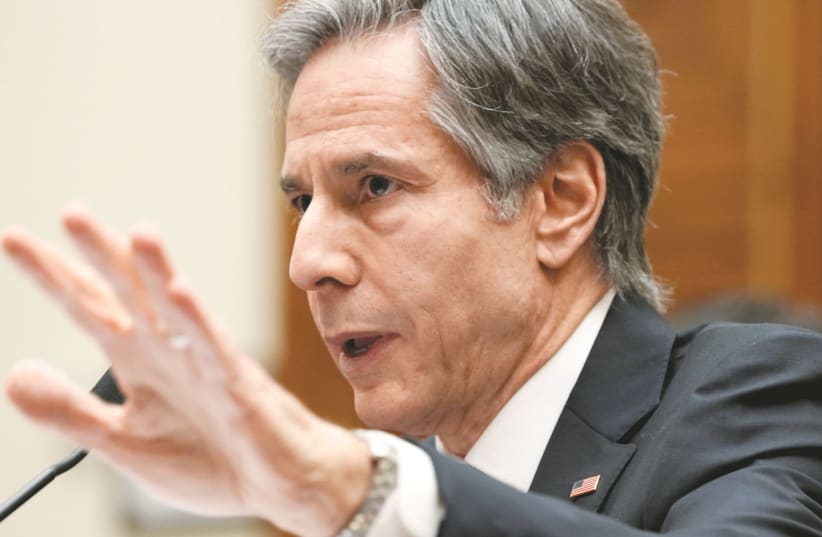While big gaps remain between Washington and Tehran, there could be an agreement within weeks for both to resume compliance with the 2015 Iran nuclear deal if Iranian authorities decide to do so, a senior US State Department official said on Thursday.
“Is it possible that we’ll see a mutual return to compliance in the next few weeks, or an understanding of a mutual compliance? It’s possible yes,” the official told reporters on condition of anonymity during a telephone briefing. “Is it likely? Only time will tell, because as I said, this is ultimately a matter of a political decision that needs to be made in Iran.”
US officials will return to Vienna for a fourth round of indirect talks with Iran on how to resume compliance with the deal.
US Secretary of State Antony Blinken said on Thursday that it is yet to be seen if the Iranians are ready to return to compliance with the JCPOA.
“We’ve been engaged in indirect talks in Vienna – they’re starting up again now at the end of this week – and what we don’t know is whether Iran is actually prepared to make the decisions necessary to return to full compliance with the nuclear agreement,” he told Andrea Mitchell on MSNBC.
“They, unfortunately, have continued to take steps that are restarting dangerous parts of their program that the nuclear agreement stopped, and the jury is out on whether they’re prepared to do what’s necessary,” Blinken added.
The crux of the agreement was that Iran committed to taking steps to rein in its nuclear program to make it harder to obtain the fissile material for a nuclear weapon in return for relief from US, EU and UN sanctions.
The US official quoted earlier said it might be possible to revive a nuclear deal before Iran’s June 18 election, but again put the onus on Iran to make such a political decision.
“We think that it’s doable because it’s not rocket science,” the official said. “It’s not inventing a new deal... Is it possible to get a deal before the Iranian elections? Absolutely.”
However, he said this would require Iran to avoid asking Washington to do more than what is envisaged in the agreement while Tehran would seek to do less.
“If there is a clear and realistic practical view about what this means, it can be done relatively swiftly, both in terms of reaching an understanding and then implementing it, but the pace would have to accelerate for us to get there in the coming weeks and no guarantee that that will be the case,” he said.
All parties to the original deal – Iran, Britain, China, France, Germany, Russia and the United States – have joined the Vienna talks, with chiefly European diplomats shuttling between the US and Iranian delegations.
The US official described recent inaccurate reports about there being an agreement to release US citizens detained in Iran as an “unspeakable cruelty,” and said there are separate talks about this.
“We’re treating it independently,” he said, saying it was “a matter of utmost urgency to get the detainees home. And we want it to be resolved sooner rather than later – immediately.”
In addition, Blinken addressed the American hostages in Iran.
“We are resolutely focused on Americans who are being arbitrarily detained or being held hostage in Iran or anywhere else,” he said. “I work on that, our team works on that virtually every day, and unfortunately around the world, because there are cases in a number of places.
“When I first got on the job, one of the first things I did was to meet virtually with the families of every American abroad who is being arbitrarily detained or is being held hostage, and this is a huge problem that I think increasingly you’re going to see countries take a stand against.
“Canada, which has two of its citizens being arbitrarily detained in China, has been helping lead an effort, and I think you’re going to see more and more countries coming together to make it clear that this practice is totally unacceptable. And if countries engage in it, there are going to have to be consequences.”
